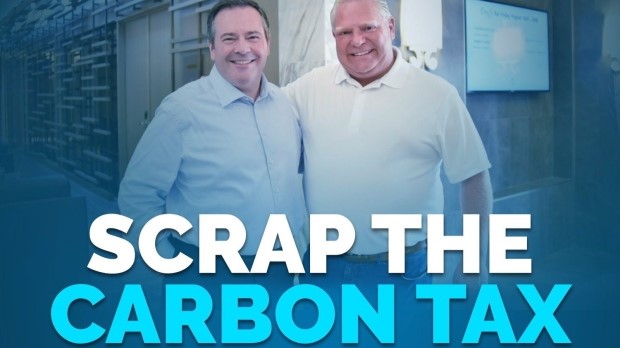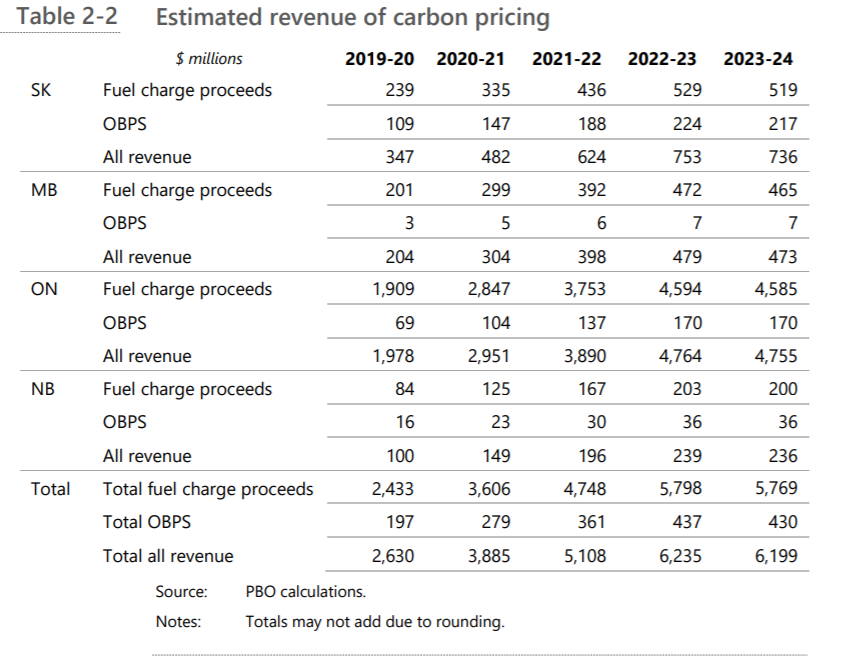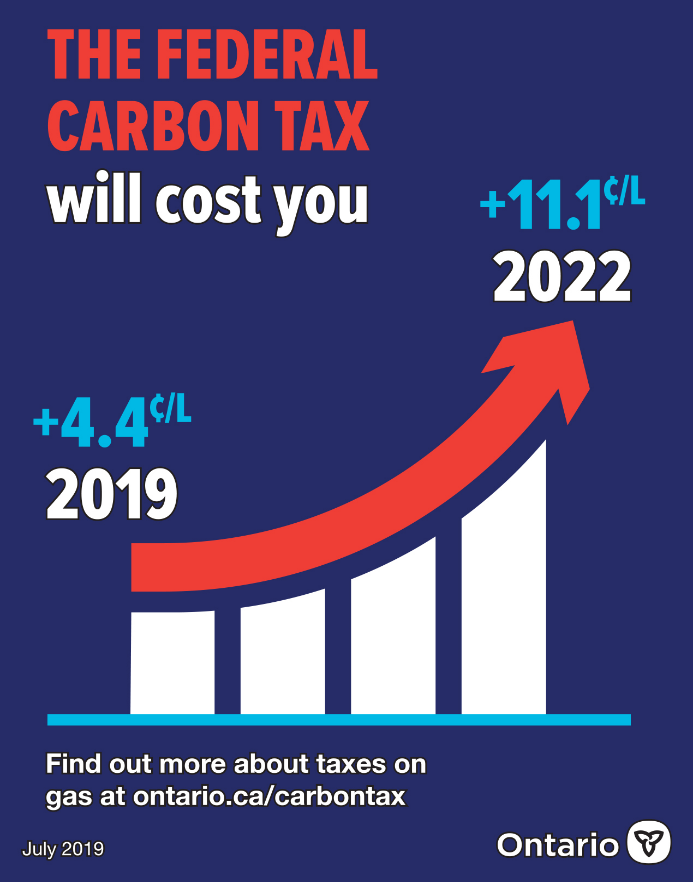The 2019 Canadian Federal Election is Over. Where Could Premiers Go With the Carbon Tax Debate?
The 43rd Canadian election is behind us, and with it comes a strong minority for Prime Minister Justin Trudeau and the Liberal Party. All in all, 63% of Canadians cast ballots for a party that supported some form of a carbon tax. That stands in contrast to the five provincial Premiers in Alberta, Saskatchewan, Manitoba, Ontario and New Brunswick that have previously stated a fervent opposition to the policy. The five Premiers have already mentioned their immediate plans on the issue, but the future is very much uncertain. What are those provincial plans? Why is each province taking the approach it is? And is there an elegant solution to this fight?

Option 1 – Create Your Own Carbon Tax and Take the Money (New Brunswick):
New Brunswick Premier Blaine Higgs has already admitted defeat on the carbon tax and will evaluate his options to comply with the Federal government after 7 of the 10 seats in the province went Liberal or Green. To understand Higgs’ positioning, it is vitally important to remember the Federal government has created a carbon tax backstop that only applies if a province does not create a scheme of its own that lives up to the Federal standards. If a province meets the standard – like British Columbia and Quebec have for example – they get to keep the revenue and spend it as they see fit. Those governments can give the money back to taxpayers or use it to pay for new programs, their choice.

However, provinces only get to keep the money if they levy the tax themselves. This subtle nuance explains Premier Higgs’ public statement to explore a “made-in New Brunswick” system.[1] New Brunswick’s net-debt-to-GDP ratio is 4th worst in Canada and its unemployment rate is the 3rd highest.[2] For Higgs, gaining control over the carbon tax would see his government have an estimated $100 million this year – rising to nearly $240 million by 2023-24 – to spend as it sees fit on New Brunswick’s priorities.[3] Based on his public statements, having a say over that money outweighs the political repercussions of embracing a tax he previously opposed.
Option 2 – Fight the Carbon Tax to the Very End (Saskatchewan and Alberta):
Premiers Scott Moe and Jason Kenney, in Saskatchewan and Alberta respectively, have clearly staked out this ground as the Liberal Party of Canada failed to win a single seat in either of their provinces. For their constituencies, the carbon tax is an absolute non-starter. They will fight the tax in court to the very end, likely resulting in a Supreme Court challenge at the end of the day. The fight will drag on for several months still and will show their voters that they are standing up for Western Canada during a time where Western voters feel more alienated than ever.
Operationally, that means the federal backstop will continue to be applied in their jurisdictions for the time being. Eventually, the courts will render a decision. If that decision finds the carbon tax to be jurisdictionally legal, both Premiers will have to decide to either implement the carbon tax in their own provinces like Premier Higgs is considering, or to allow the backstop to continue, thereby preserving the ability to blame the Federal government but losing out on the ability to spend the revenue as they see fit. If the court decision renders the carbon tax unconstitutional, the two Premiers are heroes; that chance is worth the fight.
Option 3 – Fight the Carbon Tax in Court but Embrace the Principle (Manitoba):
This option may sound contradictory at first, but Manitoba Premier Brian Pallister has been successfully playing both sides of the issue for over a year, while managing to secure a second majority government in the process. Pallister previously embraced a revenue neutral carbon tax but one that increased at a rate determined by the Manitoba government. Since the Federal government did not find the made-in-Manitoba plan compliant, Pallister postponed his plan and instead took the Federal government to court. After the 2019 election results, Pallister is holding out a similar position by continuing with his lawsuit and instead defending the option of a less expensive Manitoba carbon tax.
Continuing the fight against the carbon tax in court has two advantages. Politically, it allows those Premiers fighting to defend taxpayers who are upset by having to pay more. From a policy perspective, it will force the courts to clearly define what is and is not federal jurisdiction on environmental policy. Does the Federal government have the power to levy this tax? Can they create regulatory frameworks for businesses clearly operating within provincial boundaries? Getting an answer to these questions will help inform the provinces of their chances in future jurisdictional fights on everything from border crossings to pharmacare.

Option 4 – Use the Fight Against the Carbon Tax as Leverage (Potentially Ontario):
In Ontario, Premier Doug Ford has continued to share his personal disagreement with the carbon tax and his government has stated they will continue to fight the tax in court. However, prior to the election, the Premier stated that “The people are going to decide, when the election is held,”[4] and even after the election his Attorney General Doug Downey has said that their government is open to talks with the Federal government about the tax.[5] The door may be open for a more elegant approach to the situation.
By continuing the court case, Premier Ford immediately creates leverage. Despite 70% of the province’s Federal seats going to pro-carbon tax parties, continuing the court case is a real option. The fight would drag on, the media war would continue, and the possibility that a court may make a jurisdictionally messy ruling such as finding the federally imposed carbon tax legal but the output-based pricing system on industry illegal would still be very real.
This is where Premier Ford could find a happy medium. Ford self-admittedly knows he must work with Prime Minister Trudeau for the foreseeable future, so why not give it a shot? While the court challenge is certain to go to the Supreme Court regardless due to appeals from Alberta and Saskatchewan, the Ontario Premier could offer to drop the lawsuit in exchange for some unique benefits. The Federal government would get a big political win by weakening the opposition to carbon taxes, but it would not come for free. They could offer up the full 40% funding the province has asked for on its four main subway projects. Or, as stated in the made-in-Ontario environment plan, the province could push the Federal government for temporary Ontario only exemptions for big industries like auto manufacturing or agriculture,[6] similar to the ones Nova Scotia received to allow coal fueled energy production beyond 2030.[7]
On top of that, by working with the Prime Minister on a deal, Ford would be able to abandon the alternative measures he put forward in his own environment plan to reduce greenhouse gas emissions which are supposed to take the place of a carbon tax. This means abandoning the pledge to spend $400 million over four years on an Ontario Carbon Trust. The trust has yet to be set up, meaning the Ontario government can pocket the $400 million to help with its deficit or use it to spend on other provincial priorities.
More broadly, If the Ontario government wants control over the nearly $5 billion a year that the carbon tax will generate from Ontario by the end of Premier Ford’s mandate, they will have to implement a carbon tax themselves. On the positive side, that money could pay for the 20% tax cut Ford promised in the campaign and a whole lot more – even ironically paying to fulfill his promise to reduce gasoline taxes. However, on the negative, an about face on carbon taxes could be too politically damaging given the lengths the Ontario government has already gone to oppose the tax, which includes mandatory information stickers on all Ontario gas pumps.
Regardless, attempting to deploy this strategy means continuing the fight on the carbon tax for the immediate future. However, the option for a deal is time limited since a final court ruling will eliminate any leverage Premier Ford may currently enjoy.
Conclusion:
Unless the courts return a ruling that the carbon tax truly is unconstitutional, each Premier will have a difficult decision to make. Some, like Premier Higgs, may embrace the tax. Others may refuse to ever implement the tax, holding out hope that the minority parliament may give way to an election and a Conservative government that would repeal the tax. For now, each Premier will choose their own path, but do not be surprised to see them make significant adjustments along the way.
Check out the Institute’s recent coverage on CTV News about the new political landscape post-election here – https://toronto.ctvnews.ca/video?clipId=1810665&binId=1.3378530&playlistPageNum=1
[1] https://www.cbc.ca/news/canada/new-brunswick/carbon-tax-new-brunswick-higgs-federal-election-1.5330765
[2] http://www.rbc.com/economics/economic-reports/pdf/canadian-fiscal/prov_fiscal.pdf and https://www150.statcan.gc.ca/t1/tbl1/en/cv.action?pid=1410028703
[3] https://www.pbo-dpb.gc.ca/web/default/files/Documents/Reports/2019/Federal%20Carbon/Federal_carbon_pricing_EN.pdf
[4] https://www.cbc.ca/news/canada/manitoba/brian-pallister-carbon-tax-opposition-election-1.5331216
[5] https://www.thestar.com/politics/provincial/2019/10/22/ontario-moving-ahead-with-supreme-court-appeal-of-federal-carbon-tax.html
[6] https://prod-environmental-registry.s3.amazonaws.com/2018-11/EnvironmentPlan.pdf
[7] https://www.osler.com/en/resources/regulations/2015/carbon-ghg/carbon-and-greenhouse-gas-legislation-in-nova-scot
